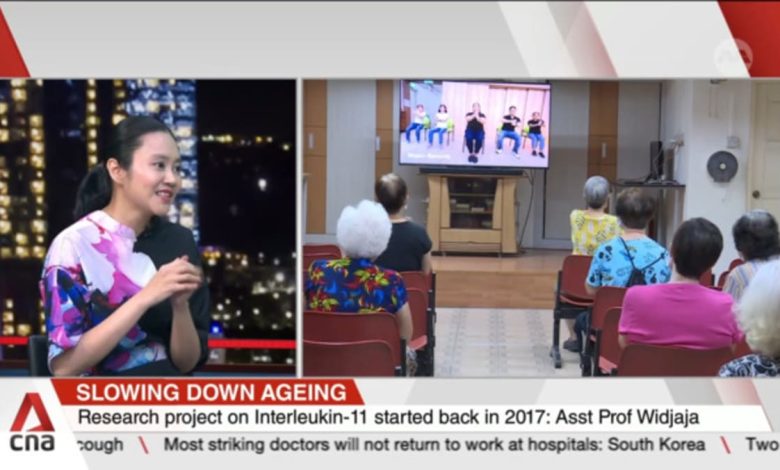Blocking this protein in the body could slow the ageing process: Duke-NUS researchers

SINGAPORE: Researchers from the Duke-NUS Medical School have discovered a protein that actively promotes ageing.
Their study showed that as the body ages, organs express increasing levels of the interleukin-11 (IL-11) protein.
Raised levels reduce muscle mass and strength, and increase fat accumulation in the liver and abdomen – the hallmarks of ageing.
Hence, blocking this protein could potentially slow ageing and increase healthy lifespans.
“Ageing is driven by a small set of switches that get more and more active as we get older,” said Assistant Professor Anissa Widjaja from the Duke-NUS Medical School’s Cardiovascular and Metabolic Disorders Programme.
“If we can turn one or two of these (switches) off, it will cause our cells to regain their youthful functions so they can function better,” she told CNA’s Singapore Tonight on Thursday (Jul 19).
“And, IL-11 is one of these switches.”
THE DISCOVERY
Prof Widjaja, who is the first and co-corresponding author of the study, said the discovery was “pure luck and serendipity”.
In 2017, her team received tissue samples of different age groups while doing another study on the protein’s role in causing excessive scarring in the heart and kidney.
They found that the levels of IL-11 in the body increased with age.
“I was very confused in the beginning. We couldn’t find any possible role of IL-11 in ageing in (published literature),” she recalled.
“During ageing, you have more tissue scarring, inflammation, and a decline in your body’s ability to heal, repair and regenerate after injury,” she said.
As IL-11 causes similar responses in the body, her team established that the protein could be a key driver in the ageing process, she said.


 Bonuses for new players
Bonuses for new players